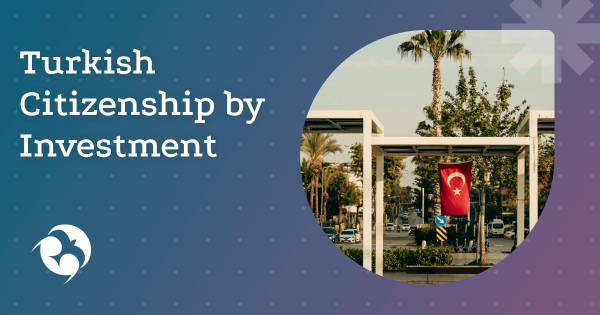In 2018, the authorities opened the Portugal Startup Visa (Article 89.4) to attract talented entrepreneurs and investments. This law enabled the creation of an international innovation center in Portugal. Under this program, according to points 60 and 81, foreign businessmen without EU residency can implement commercial projects and contribute to the country’s economic development.
The program was launched at the initiative of the IAPMEI agency under the Ministry of Economy. Experts focus on innovation, startup acceleration, and provide young companies with state-level support. They evaluate startups from financial perspectives, development prospects, job creation, scaling, and entry into the European market.
How to Get a Visa
The key condition is the prospect of establishing a company with the support of accredited accelerators organized within IAPMEI. Numerous business incubators (BIs) are localized in the center of the country, on the Azores and Madeira islands. They do not invest financially in projects in exchange for a share, but offer preferential programs to budding entrepreneurs. Specialists help adapt to new conditions: deal with reporting, rent coworking spaces, increase customer loyalty, and enhance the investment attractiveness of small and medium-sized businesses.
Step-by-step procedure for obtaining Startup Portugal:
- Register on the official portal.
- Fill out the form and send the documents according to the BI list.
- Receive approval and pay the fee.
- Schedule an interview at the consulate to obtain a 4-month entrepreneur visa.
- Enter Portugal and obtain an initial 2-year residence permit (citizen card).
Key Features of the Program
Portugal Startup is a promising way to immigrate to Europe. The law allows the second spouse to be registered as a co-founder of the company provided their financial solvency is proven, and to obtain two separate visas for family reunification. In one application for team relocation, the leader can list the names of 4 people. Collective relocation helps to quickly establish business processes in the new location.
Participants in Portugal Startup do not need to immediately obtain a tax identification number (NIF) or social security number (NIS). When submitting documents, they are also not required to have a rental agreement. Foreign entrepreneurs can look for housing, open bank accounts, and handle other formalities after moving.
To obtain temporary residency, foreigners are not required to make large investments. For a one-year stay, having €9840 per person in the account is sufficient. Compared to the cost of a “golden” visa (€250,000), the amount seems modest.
Businessmen residing in the country for 6 months receive tax benefits for 10 years. Participants in the Non-habitual Resident program do not pay taxes on foreign income based on a double taxation agreement. The rate depends on the company’s registration form and annual profit.
Requirements for Candidates
The project can involve adult startup founders from third countries without criminal records or debts, and teams of founders with creative ideas. Document review conditions:
- proof of qualification with a specialist/bachelor’s degree or relevant experience;
- visa in the passport or residence permit;
- medical insurance;
- proof of solvency equal to 12 social support indices.
Conditions for Obtaining a Startup Visa
Participants in the Portugal Startup program must meet specific requirements. It is not necessary to have an operating startup for relocation. A detailed presentation or MVP and meeting specific conditions are sufficient. The applicant can present a strategy for an existing business at home that they plan to continue in Europe.
Authorities expect startups to have a capital turnover or total income of €325,000 over a 5-year period. Ideas and calculations must:
- meet BI requirements;
- be based on target audience expectations;
- contain a working innovative business model;
- focus on technological development and potential;
- have labor resources for implementation;
- create competition in the European niche market.
Successful Cases
A positive response depends on the financial prospects of the startup and the field of activity. Portugal Startup Visa is not issued for opening a beauty salon or coffee shop. However, it is not necessary to invent complex projects for entrepreneurial activities with large investments. It is enough to create a commercial plan for a realistic business with a technological bias.
The agency may be interested in a network of automated points for selling coffee and pastries with a mobile ordering app. Recent examples that have received dozens of BI approvals are related to drone parcel delivery and an interactive map of dog walking spots in metropolises. If the business fails, there are no sanctions, but it will no longer be possible to extend the residence permit on this basis.
Step-by-Step Guide
The process of project review and obtaining a residence permit includes 6 sequential stages. The instructions will help increase the chances of approval and implementation of plans in a European country. From the moment of submitting the application to obtaining a Portuguese citizen card, it takes 6-8 months.
Step 1. Document Collection
The first stage includes drawing up a plan, describing the idea, and preparing a presentation to justify starting a business. Applicants write a motivation letter explaining strategies for managing processes and their impact on Portugal’s economy. Informative text increases tolerance.
All citizens who are over the age of 16 are required paper certificates of no criminal record. Before submitting to the consulate or VFS, it needs to be translated, apostilled, and notarized. The document is valid for 3 months from the date of receipt.
Step 2. Choosing an Agency
In 2023, the National Network RNI registered 100 accredited incubators providing assistance to entrepreneurs in the early stages. Finding a BI takes 1-2 months. Since 2022, many startup accelerators have avoided cooperating with entrepreneurs. Others consider only target projects related to digital technologies, and some offer services at inflated prices. To get preliminary approval, experts recommend submitting applications to several branches.
Step 3. Contacting the Incubator
For cooperation on the Startup Portugal platform, applicants create accounts and fill out an online application form with detailed personal information. Sending an email to the target recipient allows you to contact the BI by phone and briefly present the project to increase loyalty. Program participants pay the incubator’s services monthly up to €90 per month, including VAT. Every 3 months, the inspecting body sends reports on project development to IAPMEI. It is impossible to refuse services without penalties. If the incubation is successful, the BI withdraws from control after a year.
Step 4. IAPMEI Approval
Candidates submit a project confirmation request on the online platform of the local aggregator. The review period takes up to 3 months. Foreigners can address all questions to startup.visa@iapmei.pt. Specialists respond to emails within 3 days. BIs also send confirmations and rejections through the platform. If the project is interesting, candidates are scheduled for an interview. If multiple incubators send approvals, applicants compare conditions and choose the best option.
Step 5. Signing the Agreement
After receiving approval and paying for the services, candidates are sent a declaration to participate in the acceleration program. At this stage, after studying the conditions, both parties sign the agreement. Although the startup concept is clear, the terms are discussed in advance as a last resort. Company founders are responsible for them.
Step 6. Submitting Documents for the Startup Visa
After signing the agreement, the candidates prepare to submit documents to the consulate in their home country to obtain a visa valid for 4 months. It allows entry into the country twice. Slots for submitting documents in this category open frequently. If you call several times a day (+351 217-115-000), you can book an appointment within the next 15 days. List of documents for program participants:
- completed standard form;
- IAPMEI confirmation;
- passport with registration and at least 3 months remaining;
- 2 biometric photos;
- travel insurance with coverage of €30,000;
- certificate of no criminal record for the past year;
- motivation letter;
- proof of financial stability or a sponsorship letter from a Portuguese passport holder.
The waiting period is from 3 weeks to 2 months. In case of problems, the consulate sends a refusal declaration explaining the reasons. The decision can be appealed within 10 days. Often, problems arise due to the submission of incomplete document packages and are quickly resolved. In case of a final refusal, the applicant makes a new attempt.
Obtaining a Residence Card
Relocants with a Startup Portugal or D2 visa enter the territory and exchange them for a plastic card at AIMA. This body deals with integration, migration, and refugees. Holders of stickers obtained in Russia do not need to join the SEF queue. The date, time, and office address are indicated in the passport. Those who arrived on a tourist visa are forced to join a long waiting list. The process stretches over months.
Before submitting an application, business leaders must consider the education of team members. A refusal on this basis to one person extends to all. It is also necessary to convince the authorities of the legality of arrival. If Portugal is the first entry into the Schengen zone, a boarding pass is additionally attached. When crossing the border of another EU country, for SEF receipt purposes, they check into a local hotel or rent apartments on Airbnb. Then they get a contract registered with the tax office.

- We will answer all your questions
- We will help you choose the best option
- We will guide you through every step or do everything for you
The authorities issue residents a plastic card within 15 days for 24 months with the right to renew for the next 36 months. The residence permit allows establishing companies and setting up businesses. Residents are required to live in the country for more than 180 days a year. If this period is exceeded, the residence permit will not be renewed. Temporary residency is essentially approved at the visa issuance stage. At the end of the first term, it is necessary to show that the business has been developing and profitable for at least 1.5 years.
Cost of a Startup Visa
The amount consists of various expenses, including the number of family/team members. Translation costs from €90, purchasing medical insurance for the consulate costs €100. The consular fee and state duty are €85 and €90 respectively. The cost of the residence permit card is €85. Renting an apartment for six months averages €4800. Participants in the program do not pay for obtaining a tax number and company registration.
Entrepreneurs accustomed to conducting business according to classic models can apply for a D2 visa. It allows commercial activity in any field, to purchase a company or a share.











